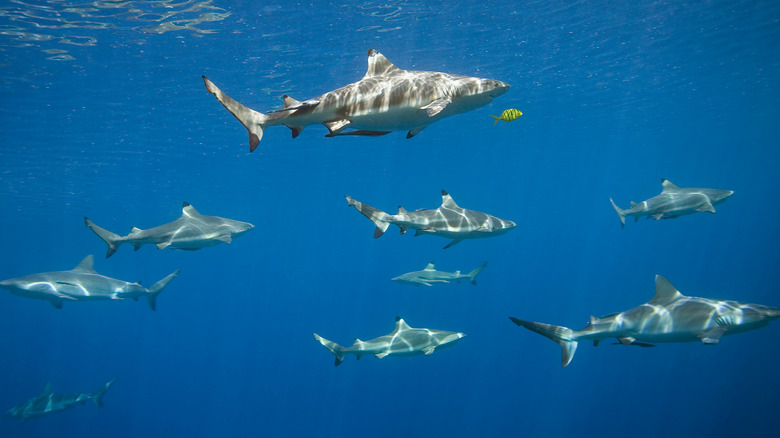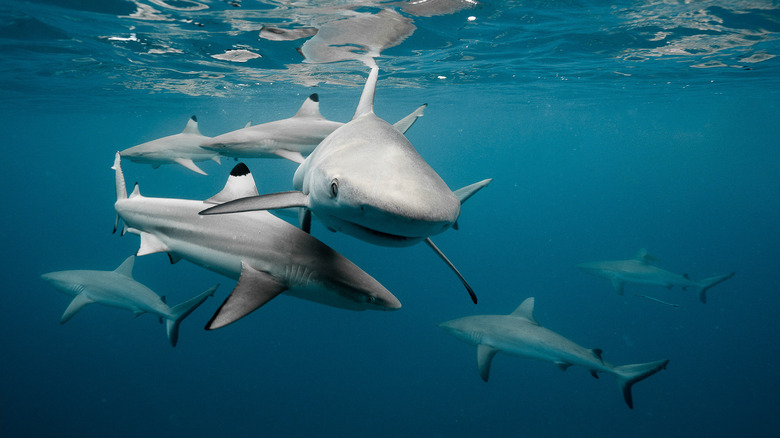Here's What Happens When Sharks Build Friendships
For quite some time, we have thought of sharks as lone hunters scavenging the sea for food in an almost robotic manner. Feeding into this concept, sharks usually appear this way in pictures, on film, and in other types of media. More often than not, the general public is presented with an image of a solo shark who is little more than a murder machine. In many fictional representations, the shark actually is an animatronic robot performing to scripted material (via Cinemablend). On screen, he comes equipped with an unending thirst for blood and a brain full of rocks.
For this reason, when we do think of sharks together in a school, we relate that action to hunting and feeding. It isn't a friendship. Rather, it's a frenzy. New evidence has recently emerged to counter this narrative. The more we study them, the more we are learning that sharks are socially intelligent creatures. They develop lasting bonds of friendship that can go on for years (via National Geographic). Baffling scientists, and the world, these friendships exist outside of hunting.
Shark friendships create fascinating underwater communities
Science Alert reports that a four-year study that took place near the Palmyra Atoll logged 972 "significant social clustering events." This is not just a lone incident. In fact, shark friendships are only odd to humans. For the shark community at large, they're the norm.
Like other underwater social carnivores, sharks appear to reside in fission-fusion societies — they disperse, singly or with others, to hunt, but return to fuse once again with the main group. This means that shark friendships are one aspect of creating shark communities. There are all sorts of benefits to sharks splashing around the deep blue sea together. One of those is information sharing (via The Royal Society Publishing). They are not only building and growing together. Also, and importantly, these savvy sharks are teaching and learning from one another.
The four-year study observed shark friendships being developed and maintained. Some sharks in the study showed a definite affinity for one another. Some even showed a sense of aversion to certain fellow sharks. In a way, this should come as no surprise. A 2016 study published in the Journal of Fish Biology (posted at Wiley Online Library) showed that sharks of the same species can exhibit different personality traits. Is it any wonder they would build friendships according to their own personal preferences?
Shark Week airs through July 18 on Discovery and discovery+.

